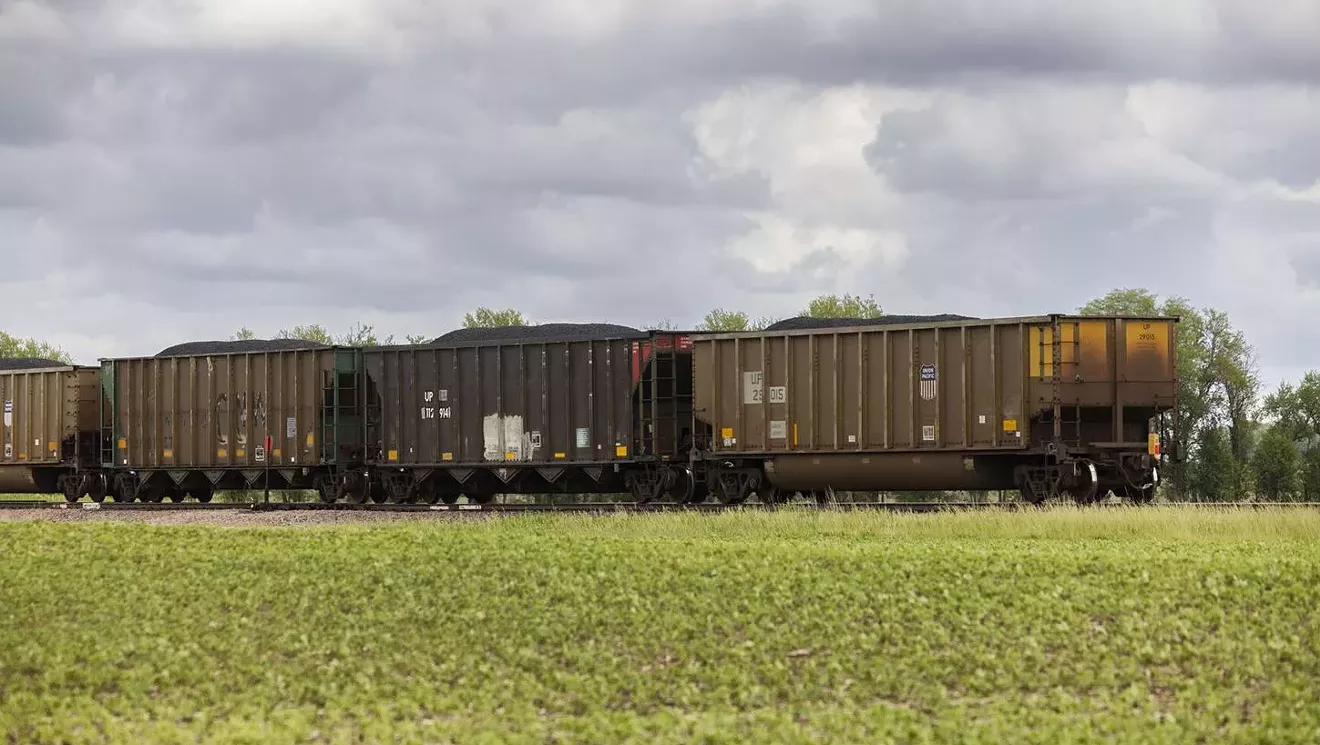
Photo by Catrina Rawson of FarmWeek
A train moves across central Illinois earlier this summer, prior to a proposed merger in the industry between Union Pacific and Norfolk Southern.
Some transportation groups are skeptical and some
ag groups are seeking more information about the implications of a
planned merger between rail rivals Union Pacific and Norfolk Southern.
DTN reported both companies’ boards of directors
unanimously agreed to a deal July 29 in which Union Pacific will acquire
Norfolk Southern for $85 billion, resulting in a combined enterprise
worth $250 billion.
If approved by the federal Surface Transportation
Board, the merger would create the first intercontinental railroad in
the U.S., linking Norfolk Southern’s 19,500-mile network in 22
western states to Union Pacific’s nearly 33,000
miles in 23 western states.
Described as potentially the largest such buyout in
American rail history, the acquisition would create a rail line that
spans more than 50,000 miles over 43 states, linking more than 100 ports
and touching nearly every corner of North
America.
“This combination is transformational, enhancing
the best freight transportation system in the world — it’s a win for the
American economy, it’s a win for our customers and it’s a win for our
people,” Union Pacific CEO Jim Vena said in
a news release. “It builds on President Abraham Lincoln’s vision of a
transcontinental railroad from nearly 165 years ago and advances our
safety, service and operational excellence strategy. I am confident that
this historic transition will enhance competition
to benefit customers, communities and employees while delivering
shareholder value.”
But while the two companies say a transcontinental
railroad will be more efficient, increase competitiveness for workers
and improve transit times by eliminating interchange delays, some ag and
transportation groups are skeptical.
Mike Steenhoek, executive director of the Soybean
Transportation Coalition, said in industry reports last week the merger
could lead to a rise in rail rates and decrease market competition —
neither of which are ideal for farmers.
“One of the things that history teaches us is that
when there has been consolidation, when there have been mergers within
the rail industry, that often results in a decreased competition for
those agricultural shippers and can result in
higher rail rates and a decrease in service,” Steenhoek noted. “Plus,
if there is less competition, agriculture is often at the bottom of the
food chain.”
Shortly after the Union Pacific-Norfolk Southern
announcement, the National Grain and Feed Association (NGFA) announced
it would begin an “extensive evaluation of the proposed merger to better
understand its implications for our industry.”
The organization estimates that about 10% of all
rail shipments annually — or 3.2 million rail cars of grains, oilseeds
and other products — are agricultural, with 26% of grain requiring at
least one rail movement.
“NGFA looks forward to hearing from Union Pacific
and Norfolk Southern railroads and learning how they believe the merger
will create resilient and reliable efficiencies and incentives in
timeliness of service and deliveries — along with
fair and reasonable rates to better serve our members,” NGFA President
and CEO Mike Seyfert said in a prepared statement to media. “NGFA will
also undertake extensive analysis and discussions with our members to
determine the impact on cost and competitiveness
for American agriculture.”
Similarly, a representative of the American Farm
Bureau Federation said more time is necessary to determine the merger’s
potential impact on the agricultural industry.
Some shipping groups have already voiced their concerns with the merger.
The American Chemistry Council, Freight Rail
Customer Alliance and National Industrial Rail League said in early
reports their members worry about the potential for reduced market
competitiveness and increased monopoly of U.S. rail lines,
the majority of which are dominated by four companies.
“The impact of a transcontinental merger between
two of these railroads threatens to leave American manufacturers,
farmers and energy producers with even fewer competitive options to ship
by rail,” a statement from the American Chemistry
Council said.
An application from Union Pacific and Norfolk Southern is pending before the Surface Transportation board.
The two companies expect to file an application
before the federal regulatory board within six months; the board then
has 16 months to review it.
In a news release, Union Pacific said the two
companies hope to see the acquisition — which is also pending approval
from the companies’ shareholders — finalized in 2027.
This story was distributed through a cooperative
project between Illinois Farm Bureau and the Illinois Press
Association. For more food and farming news, visit FarmWeekNow.com.


